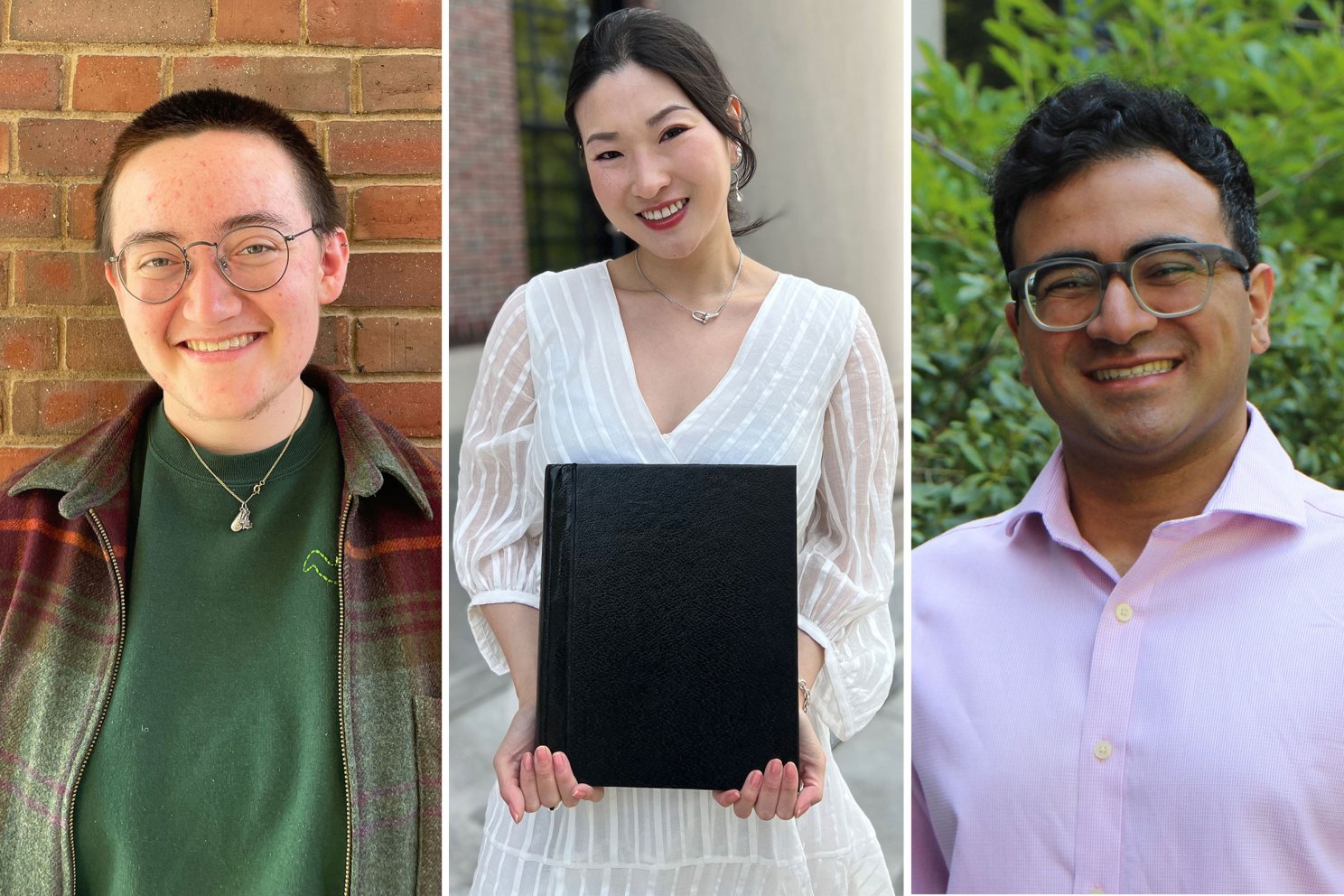Seniors Isaac Heller, Cecilia Zhou, and Deepak Singh have been awarded this year’s Taliesin Prize for Distinction in the Art of Learning.
The prize, named for the sixth-century poet, was established by the Division of Arts & Humanities in 2020. It is awarded to three graduating seniors who show a “spirit of intellectual adventure” in their chosen curricula as Harvard students.
Faculty from the Faculty of Arts and Sciences nominate students for the prize annually. Winners are selected by a committee made up of faculty from all divisions. The goal is to honor academic achievement in a “holistic” way, outside conventional standards like GPA or a thesis.
Heller did a joint concentration in Theater, Dance & Media and Women, Gender, and Sexuality Studies. In a statement, he said auditing two TDM courses that didn’t appear on his transcript — “Queer Cabaret” and “The AIDS Epidemic in Live Arts, Culture and Protest” — were instrumental in shaping his academic and artistic path.
“Here, performance provided me a sense of immediacy that I had been missing, giving me an embodied connection to queer narratives and awakening my desire to find new ways of connecting with queer histories,” Heller said. “… Reaching for these histories has brought me into networks of care and closeness that connect me both to other people and to the past.”
Singh did a joint concentration in Computer Science and Neuroscience and a secondary field in Philosophy. In a statement, Singh said he was diagnosed with glaucoma at 18 and experienced significant vision loss by the end of freshman fall, requiring him to leave Harvard for emergency surgery to prevent blindness. After a difficult year-long recovery, Singh said he returned feeling grief, anger and loneliness, and sought meaning in philosophy classes. Not finding the answers he was looking for, Singh learned to code and began exploring neuroanatomy, specifically computation, learning and their physical implementations in the brain.
“Harvard has made the biggest problem in my life finally seem tractable,” Singh said. “My senior year courses on neuroplasticity, stem cell regeneration, and drug discovery have prepared me to realistically devote my life to curing glaucoma by combining machine learning and biotechnology. Why we suffer is a question I have not answered, and likely never will. What to do in the face of suffering, perhaps a more important question, is what my Harvard education has empowered me to answer.”
Zhou did a joint concentration in History of Art & Architecture and English. In a statement, she said that although her primary academic interests are art and literature of late medieval and early modern Europe, it was courses outside those fields that impacted her most, including courses on diagrams, property regimes and the social impact of scientific advancement.
“I have pursed an interest in not only what and how people create — standard fare in the study of art and literature — but also the human identities, conditions, and possibilities that are in turn generated by those very creations,” Zhou said.






